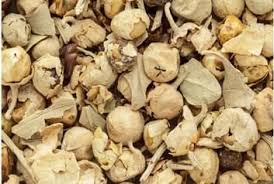In today's fast-paced world, finding harmony between the body and mind is essential for overall well-being. Ayurveda, the ancient science of healing, provides a holistic approach to balancing physical, mental, and emotional health. At Dirghaanshi, we explore how Ayurvedic practices can help restore balance, promote inner peace, and enhance your health, both physically and mentally.
Achieving Balance: The Core of Ayurveda
Ayurveda, often referred to as the "Science of Life," focuses on the concept of balance. According to Ayurvedic philosophy, when the body, mind, and spirit are in harmony, overall health is maintained. However, modern life can often disrupt this delicate balance, leading to stress, anxiety, physical ailments, and mental fatigue. Ayurveda offers simple and natural remedies to restore equilibrium, promoting long-lasting health and wellness.
1. Understanding Doshas for Personalized Balance
In Ayurveda, the body is believed to be governed by three main energies, or "doshas": Vata, Pitta, and Kapha. Each person has a unique combination of these doshas, which influences their physical constitution, mental tendencies, and emotional responses.
Benefits:
- Tailors treatments based on your unique constitution (Prakriti).
- Helps identify imbalances and suggests personalized solutions.
- Promotes mental clarity, emotional stability, and physical health.
How to Balance:
- Vata imbalances (often related to anxiety and dryness) can be balanced by calming, grounding practices like meditation and eating warm, nourishing foods.
- Pitta imbalances (associated with irritability or inflammation) can be managed with cooling herbs like mint and practicing relaxation techniques.
- Kapha imbalances (linked to lethargy and congestion) can be balanced by stimulating activities, lighter foods, and invigorating herbs like ginger.
2. Ayurvedic Herbs for Mental and Physical Harmony
Ayurveda utilizes natural herbs to help balance both body and mind. Popular herbs include Ashwagandha, Brahmi, Tulsi (Holy Basil), and Turmeric, which are known to calm the mind, improve cognitive function, reduce stress, and enhance overall vitality.
Benefits:
- Reduces stress and anxiety.
- Improves mental clarity and focus.
- Enhances physical vitality and immunity.
How to Use:
- Ashwagandha is an adaptogen that helps the body manage stress, supporting a calm and balanced mind.
- Brahmi enhances cognitive function and mental clarity, making it ideal for improving focus.
- Tulsi supports emotional balance and strengthens the immune system.
- Turmeric reduces inflammation, promoting physical well-being.
3. Meditation and Mindfulness Practices
One of the key aspects of balancing the mind and body in Ayurveda is regular meditation and mindfulness practices. These practices help calm the nervous system, improve emotional stability, and promote mental clarity.
Benefits:
- Reduces stress and anxiety.
- Improves focus, concentration, and emotional well-being.
- Enhances self-awareness and overall mindfulness.
How to Use:
- Practice Pranayama (breathing exercises) to reduce stress and improve mental focus.
- Engage in Mindful Meditation to bring awareness to the present moment and calm your mind.
- Incorporate Yoga to connect your mind and body while promoting flexibility, strength, and peace.
4. Balanced Diet for Body and Mind
Ayurveda emphasizes the importance of a balanced diet for maintaining harmony between the body and mind. Eating according to your dosha and the seasons helps restore balance and promotes well-being.
Benefits:
- Nourishes the body and mind with wholesome, natural foods.
- Balances the digestive system, which is key to overall health.
- Improves energy levels and mental clarity.
How to Use:
- Include foods that suit your dosha. For example, Vata types benefit from warm, moist foods, Pitta types need cooling foods, and Kapha types do well with lighter, spiced foods.
- Include seasonal vegetables, whole grains, and herbs like ginger, turmeric, and fennel to support digestion and energy.
- Stay hydrated with herbal teas such as Chamomile and Peppermint, which help to calm the mind and improve digestion.
5. Ayurvedic Detox and Cleansing
Cleansing the body is a crucial step in restoring balance. Ayurvedic detox techniques such as Panchakarma help eliminate toxins from the body, improving both physical and mental clarity.
Benefits:
- Cleanses and rejuvenates the body, mind, and spirit.
- Promotes energy, vitality, and mental clarity.
- Supports emotional well-being and stress relief.
How to Use:
- Consider Ayurvedic detox practices like Panchakarma for deep cleansing.
- Drink detoxifying teas such as Triphala or Coriander to cleanse and rejuvenate the body.
- Use Abhyanga (self-massage) with Ayurvedic oils to detoxify and relax the body.
6. Lifestyle Tips for Mind-Body Balance
Ayurveda also promotes a healthy lifestyle to maintain balance. Regular sleep patterns, mindful eating, daily exercise, and stress management all contribute to a balanced and harmonious life.
Benefits:
- Supports physical, mental, and emotional health.
- Enhances vitality and energy levels.
- Promotes emotional stability and a positive mindset.
How to Use:
- Follow a consistent sleep schedule to ensure restful sleep and rejuvenation.
- Practice gentle yoga and daily exercise to enhance circulation and energy.
- Engage in stress-relief activities such as journaling, music, or spending time in nature.














